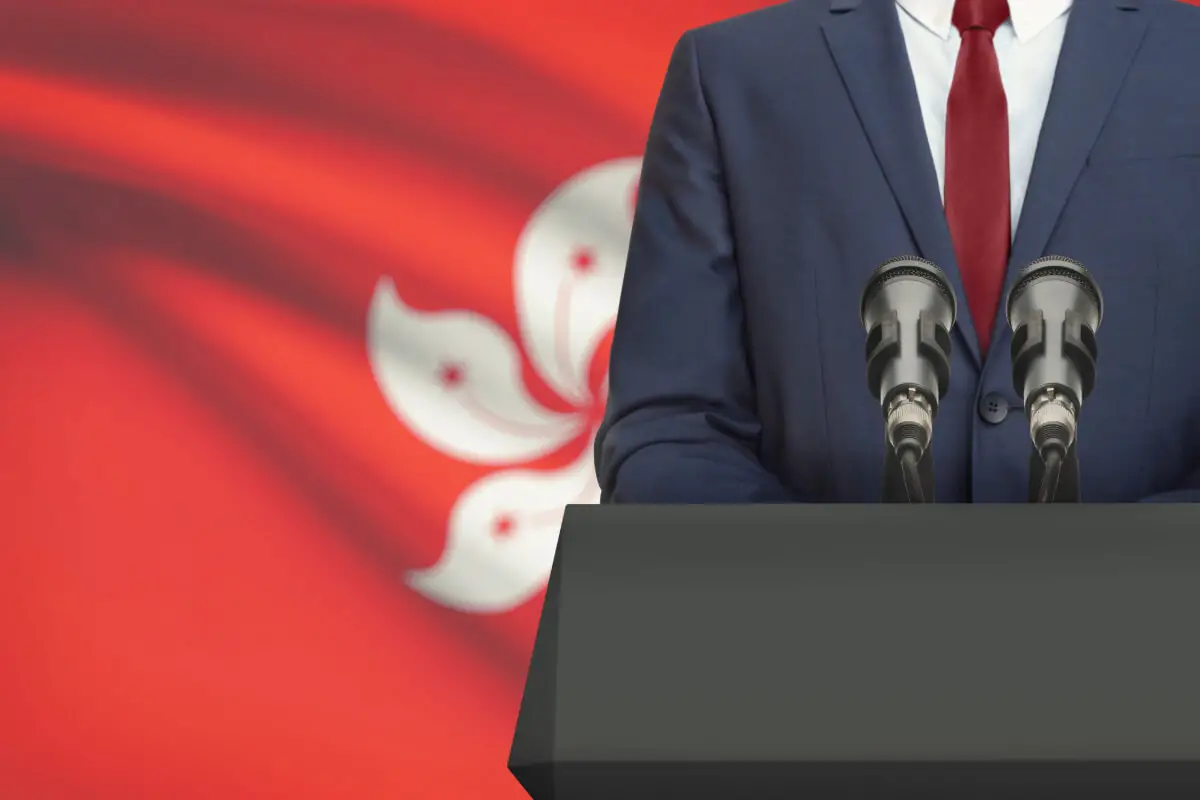The cityscape of Hong Kong, often depicted with its impressive skyline and bustling streets, belies a tumultuous political history and an ongoing struggle for democracy. Known for its unique arrangement termed ‘One Country, Two Systems,’ Hong Kong’s position within the People’s Republic of China remains a point of continual debate and conflict.
The unveiling of this tapestry begins with delving into Hong Kong’s past, a journey that stretches from the era of British rule to the contemporary setting under Chinese sovereignty. Scrutinizing Hong Kong’s political structure, electoral processes, and democratic reform efforts provides substantial insights into its current state.
Table of Contents
- The History of Hong Kong’s Political Climate
- Existing Political Structure of Hong Kong
- Hong Kong Elections and Reforms
- Pro-democracy Movements in Hong Kong
- Hong Kong’s Democracy in the International Perspective
- Related Questions
The History of Hong Kong’s Political Climate
Unpacking the Backpack of Politics: A Journey into Hong Kong’s History
Hong Kong is undoubtedly on your bucket list if you’ve got the wanderlust bug like most digital nomads! Bustling markets, towering skyscrapers, divine local cuisine – this place is a sensory kaleidoscope.
But have you ever stopped to wonder about what makes this city tick? Not the enormous clock at Tsim Sha Tsui, but its political heart. Let’s delve into the intricate tapestry of Hong Kong’s political history, shall we?
Journey with us back to the mid-19th century. Hong Kong (then just a rocky island mainly inhabited by fishermen) was taken over by the British due to the Opium War with China – and thus began the city’s colonial chapter, lasting roughly until 1997.
What does this colonial past mean for modern Hong Kong? The British introduced Western-style institutions and gradually implemented a justice system based on common law. Yet, the colonial governance remained primarily authoritarian, leaving little room for local voices in the decision-making process.
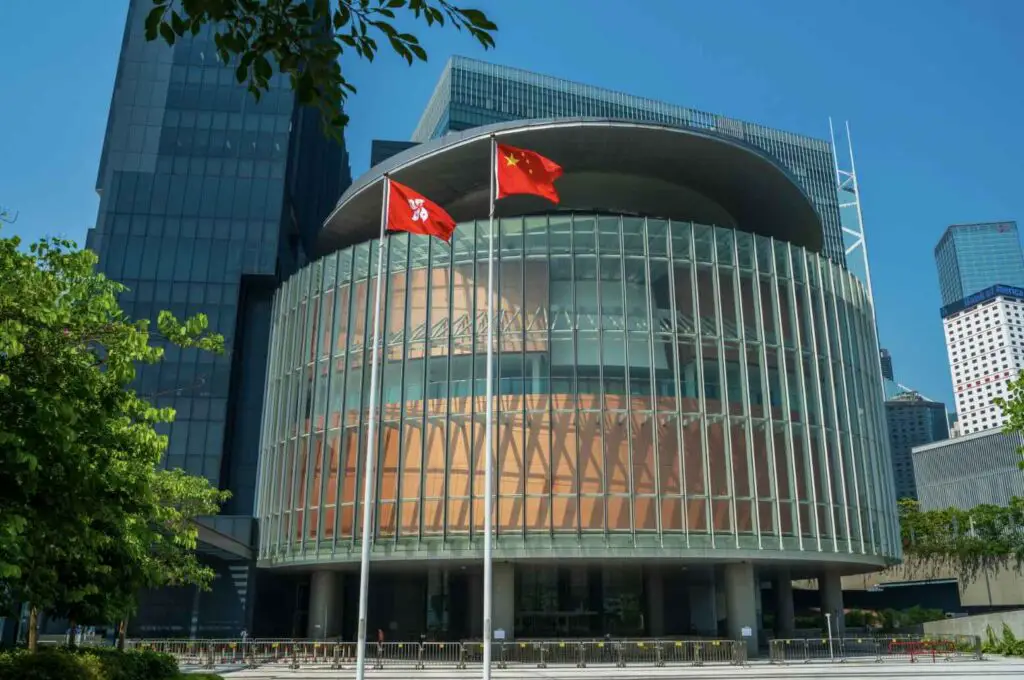
Fast forward to 1997. Cue a significant turning point: the handover of Hong Kong back to China under the principle of “One Country, Two Systems.” This meant that although Hong Kong is a part of China, it could maintain its mini-constitution (named the Basic Law) along with an independent judiciary and separate legal system till 2047. Seems like a fair deal, right?
But here lies the twist. In the years following the handover, Hong Kongers have felt an intensifying squeeze on their freedoms and autonomy. Multiple controversies, such as the National Security Law and extradition bill controversies, are prime examples.
The mainland Chinese government perceived these actions as attempts to undermine the “One Country, Two Systems” principle, leading to massive protests in recent years.
In contrast, the Chinese government frames these steps as efforts to maintain national security and the nation’s integrity, thus highlighting the complexity and tension within this unique system.
You see, the political landscape of Hong Kong is as diverse as its vibrant markets. Its colonial past and present relationship with China has shaped and continues to mold its political identity. This has resulted in an ongoing struggle between maintaining autonomy and grappling with mainland influence.
So, as you hike up to Victoria Peak or enjoy delicious Dim Sum in an unassuming café, take a moment to muse over Hong Kong’s fascinating political journey. It might add another enriching layer to your already colorful Hong Kong adventure. Now, go with the flow, fellow explorer, and enjoy your journey into the heart of this fascinating global city!
Existing Political Structure of Hong Kong
The Intricacy of Governance in Vibrant Hong Kong: a Postcolonial Tale
Straying away from the colonial ancestry of Hong Kong, let’s dive into the profound understanding of its current governmental structure. Hong Kong, a Special Administrative Region (SAR) of the People’s Republic of China (PRC), has a unique political system.
Its administration operates under a semi-autonomous framework known as ‘One Country, Two Systems’; however, the full implementation of this principle has been a subject of debate.
With an extensive panorama of political structures worldwide, you’ll find Hong Kong’s situation extraordinary as it presents a cocktail of British-influenced bureaucracy and Chinese authority.
Hong Kong’s governmental system is a vibrant ensemble of executive, legislative, and judiciary branches, underpinned by rule-based governance and the principle of judicial independence, as laid down by Hong Kong’s mini-constitution, the Basic Law.
At the helm of this complex system is the Chief Executive, the head of the Hong Kong Special Administrative Region, who represents it. Unlike most regions, the Chief Executive is not elected directly by the public but is selected by an Election Committee composed of 1200 members, having a mixed representation from various sectors of society. This unique process indeed contributes some exciting dimensions to the city’s polity.
Now, let’s delve into the colorful realm of Hong Kong’s legislature, the Legislative Council (LegCo). LegCo is a unicameral body consisting of 70 seats, half of which are geographical constituencies elected directly by the public, and the remaining are functional constituencies representing different sectors of the community. This duality in representation gives LegCo a unique character that plays out in legislative decision-making.
How can we not mention the ingenuity of the Judiciary? Its structure and functioning primarily follow the English standard law system, independent of the executive and legislative branches. The judicial power is delegated to the Court of Final Appeal, which safeguards the law and rights enshrined in the Basic Law. Through their judgments, the courts contribute to the evolving political narrative in the territory.
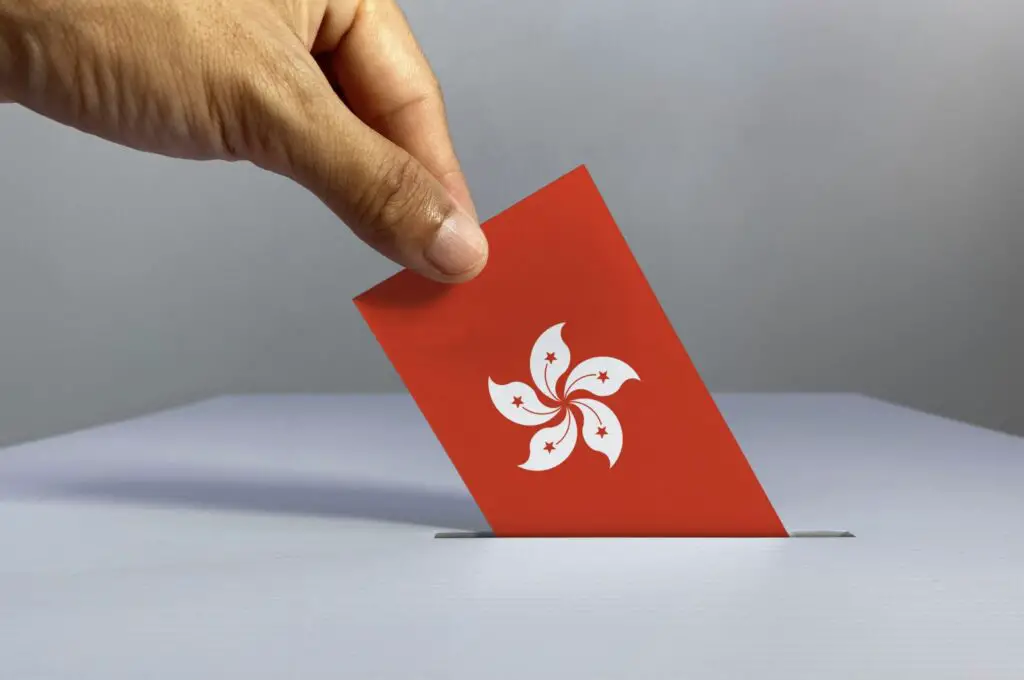
However, the notable and escalating tension between Hong Kong’s semi-autonomous status and mainland China’s towering presence is increasingly evident. The intrusion of several controversial measures from the mainland, such as the National Security Law, has raised concerns over Hong Kong’s future freedoms and autonomy.
Witnessing this enthralling chess game of governance in Hong Kong gives us an exhilarating sense of the city’s dynamic political atmosphere and a glimpse into the line between freedom and control. With its vibrant mix of East and West, old and new, freedom and regulation, this city continues to be a spectacle that the world watches with bated breath.
So, whenever you’re planning your future journey, consider Hong Kong. It’s more than just a city of breathtaking skyline and fusion cuisine. Instead, view it as a real-time political theatre where the city’s future is written one move at a time, often under the global spotlight. Who knows? Maybe the following breaking news will be experienced first-hand from the balcony of your hotel overlooking Victoria Harbor.
Hong Kong Elections and Reforms
Here we are, diving headfirst into the fascinating dynamic of Hong Kong’s political scene. Imagine wandering through the bustling streets of this vibrant city, underlying currents of political intrigue swirling around every corner. As world travelers, we understand the significance of absorbing an accurate picture of local landscapes — political and otherwise.
We raise the curtain with the Chief Executive, the head honcho in Hong Kong’s political play. Selected by a 1200-member election committee, this role merges political duty with administrative responsibility. Unfortunately, the average citizen of Hong Kong doesn’t have a say in this election—lending the process a tinge of controversy.
As we enter the grand legislative theater, we encounter the Legislative Council, LegCo. Fifty percent of this group comprises functional constituents, including professionals from different industries, while the other half comprises geographical constituents elected directly by the public. Balancing diverse voices and perspectives, this council commands a captivating presence.
As we traverse the city’s diverse landscapes, our footprints cross the domain of the Judiciary. Stalwart, in its independence, the Judiciary stands firm, committed to exercising judicial power without interference. It holds its structure sacrosanct – a Court of Final Appeal at the helm, along with the High Court and District Courts.
Yet, amid the city’s architectural wonders lies an inherent tension. Hong Kong’s semi-autonomous status stands amidst a powerful influence from Mainland China. The concerns from this interplay of freedom vs control serve as a constant subtext to the city’s future.
But, like any compelling drama, change is afoot. This dynamic political atmosphere breathes life into an evolving narrative that global spectators keenly follow. No surprise there, Hong Kong has always been a rendezvous point for East and West cultures.
So, as seasoned explorers always on the lookout for unchartered territories, our journey takes us to the enchanting whirlwind called Hong Kong. A city is playing host to an intoxicating interplay of freedom, control, tradition, and reinvention. Amidst the city’s stunning backdrop, we get the exciting opportunity to witness firsthand the unfolding of political events brewing at the center stage of global attention.
Because, for us, the nomads of the digital age, exploration isn’t limited to geographical borders but extends to intellectual horizons, understanding the stories that shape our world and, sometimes, narrating them as well. So, keep those travel bags packed, boots laced up, and hearts filled with curiosity as the saga of Hong Kong continues, inviting us to be a part of its captivating tale.
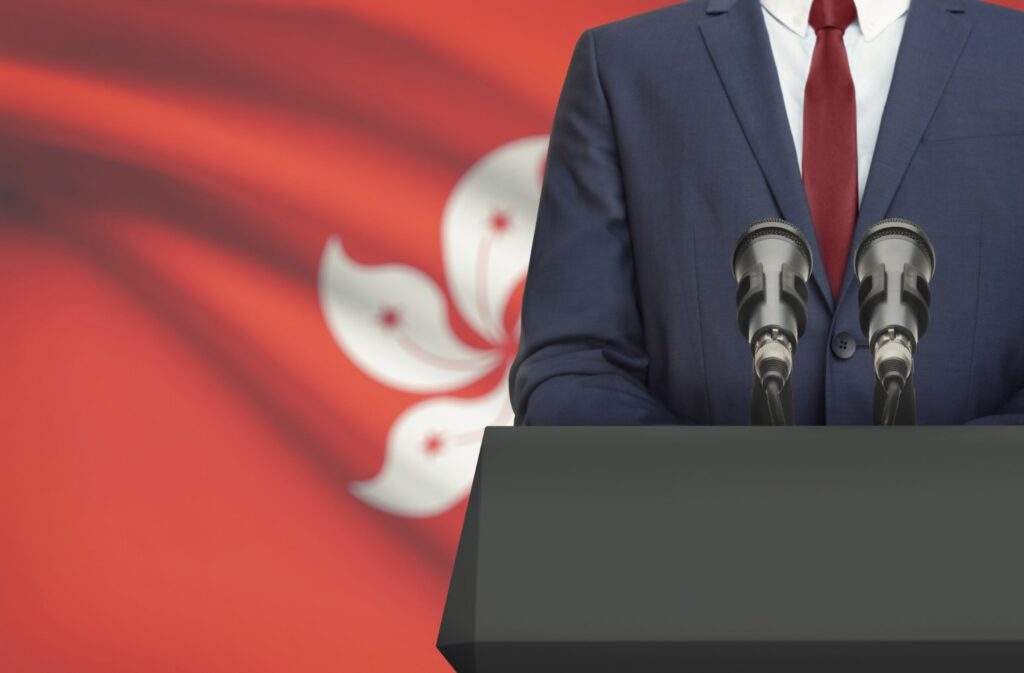
Pro-democracy Movements in Hong Kong
Moving forward, let’s delve into the remarkable pro-democracy movements that show the indomitable spirit of Hong Kong citizens.
One of the pioneering pro-democracy movements in Hong Kong is the Umbrella Movement of 2014. “Umbrella” was coined using umbrellas as shields against the government’s pepper sprays.
The protest was sparked by the Standing Committee’s decision on the Chief Executive electoral reform, which essentially limited the candidates’ selection to only those approved by a pro-Beijing committee. This movement pulled citizens from all walks of life in Hong Kong onto the streets, all shamrock green in their strong will to maintain democracy.
In 2019, Hong Kong’s cityscape was again plastered with a new wave of pro-democracy protests that captivated the world. This movement, significantly more extensive and remarkably resilient, was triggered by a proposed extradition bill.
The bill had provisions that would allow criminals in Hong Kong to be deported to mainland China, stirring fear of unfair trials and violent treatment. For many, this was a view into a dystopian future where Hong Kong’s cherished rights and freedoms would be ultimately eroded. Hence, the outcry for democracy was mightier than ever, reverberating through the vibrant city tapestry.
Both these significant movements spawned numerous smaller protests, morphing into an exemplar of peaceful resistance. Young and old, students and professionals, these demonstrations and the harmonious rallying chants affirm the city’s quest for democracy in an awe-inspiring way.
A notable feature of these pro-democracy movements in Hong Kong has been the active use of technology. From online chats to plan rendezvous points to live streaming the magnitude of the protests, digital-savvy protesters have harnessed the power of social media to its fullest potential, even using it to mobilize international solidarity.
Despite the skirmishes, lawmakers in the Legislative Council (LegCo) and the judiciary in Hong Kong have done their work. Balancing the concern about mainland China’s influence and upholding the semi-autonomous status of Hong Kong amid the evolving democratic narrative is no small task.
Hong Kong dances to this continual political tune, making it a riveting destination for travelers who thrive amid breaking news. Its evolving political atmosphere opens a firsthand view of a shifting narrative.
However, let us not forget that amidst the high-rising skyscrapers and political orchestrations; Hong Kong is also a cradle where the East meets the West, a savory pot of intermingled cultures that captivates every visitor with its charm and intrigue. Regardless of the currents that may pull and push, the spirit of Hong Kong remains invincible, and its story is still valuable.
After all, it’s often in the journey, not just the destination when we soak up the most beautiful experiences, wouldn’t you agree? Breathing in the energy of a buzzing market or walking the historic streets, moments color our travels with unique hues.
So, step lighter, venture further, and enjoy the allure of the unexpected because it’s a fascinating world out there! Every corner, every face, and every story, even one as complex as Hong Kong’s, is a chapter in the grand narrative we call life.
Hong Kong’s Democracy in the International Perspective
Navigating the Political Gauntlet: A Closer Look at Hong Kong’s Democracy
Hong Kong’s political landscape is intriguing, a grand theater that’s garnered attention worldwide. The heart of this fascinating city pulses with the robust rhythm of democracy amidst unique complexities. Devising a comprehensive view requires understanding certain critical aspects of this political fresco.
The Chief Executive role in Hong Kong and their selection process are pretty peculiar. This leader doesn’t emerge from typical popular voting. Instead, a tiny election committee, dominated by pro-Beijing electors, selects them. This semi-democratic arrangement can leave one questioning the true nature of local autonomy.
Next in line is the Legislative Council or LegCo. Its composition is an intense tug-of-war between the East and the West. Half of its seats are geographical, elected directly by the public, while the other half represents various professional sectors. This dual representation has implications, leading to a balance of power that continues to birth impassioned discussions about democratic sufficiency.
Then comes the Judiciary of Hong Kong, which is independent and structured to uphold justice. Governed by the Rule of Law – an ideal borrowed from British common law – the Judiciary acts as a solid bulwark for rights and freedoms. However, the pressure of mainland influence brings anxiety and concern for the eventual compromise of this independence.
The semi-autonomous status of Hong Kong brings tension under the spotlight. In principle, this city-state has liberties unheard of on the mainland – internet freedom, the right to assembly and protest, and freedom of speech, to name a few. However, maintaining this level of autonomy under the scrutinizing gaze of Beijing is an ongoing struggle that leads to unease about Hong Kong’s future freedoms.
Hong Kong also serves as a unique cultural rendezvous point. West meets East, sparking off a dazzling spectacle of diversity that adds spice to the city’s political scenario. This amalgamation of cultures makes the city an irresistible destination for globetrotters and political enthusiasts.
An essential chapter in Hong Kong’s recent political history is the Umbrella Movement of 2014, followed by mammoth pro-democracy protests five years later. Citizens, especially the youth, flooded the streets, voicing their fight for democracy. Technology was crucial in mobilizing these citizens, making it a shining example of digital-age dissent.
Despite the thick, gray clouds of tension, Hong Kong stands firm, its spirit resolute. The city, with its towering skyscrapers, delectable cuisine, vibrant markets, and bustling streets, continues to charm its way into the hearts of travelers. The rush of being privy to world-altering news on the ground is an exhilarating experience, making this city an inimitable travel spot.
Through all this, Hong Kong sketches a narrative in bold strokes that is magical and real. Every nook and cranny, every new face met, every story heard is a thread woven into the rich tapestry of life.
Be it a casual traveler or a hard-core political junkie, this city promises to leave an indelible mark. This memory echoes the chant for freedom and the delight of serendipitous discoveries. With its engaging political theater, Hong Kong embodies the constant flux of life.
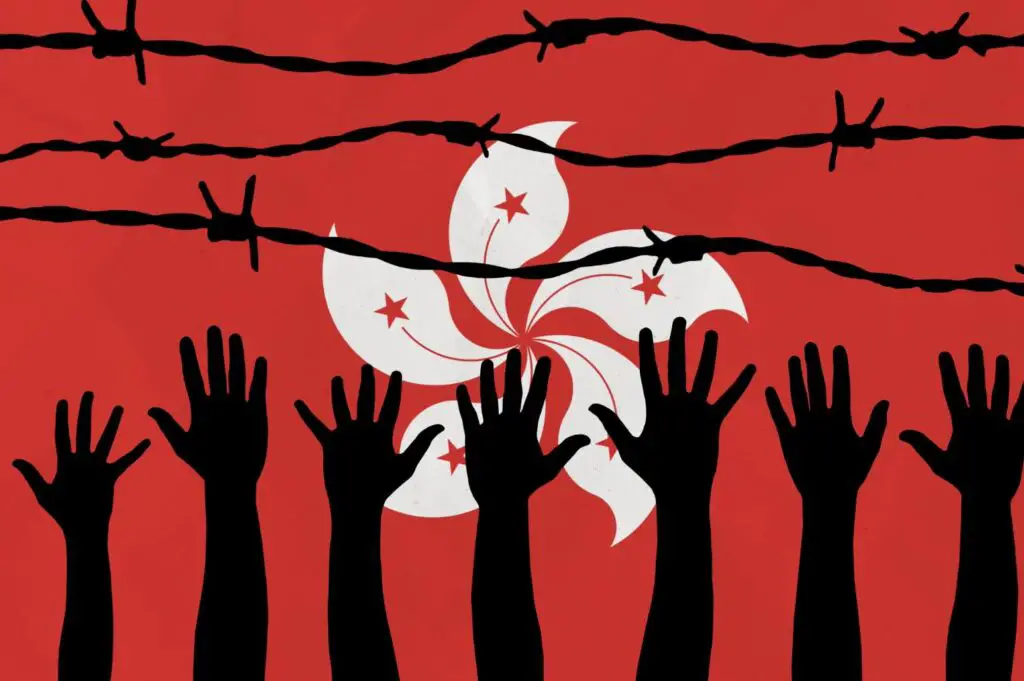
Studying the democratic status of Hong Kong entails a multi-faceted analysis of its historical and political dynamics. The transformation from the British colonial period to its handover to China has set a distinct stage for the unfolding political affairs.
The existing system, exhibiting elements of both autocracy and democracy, forms a unique construct that ignites discussions around the democratic aspirations of its citizens. Furthermore, continuing waves of pro-democracy movements showcase the residents’ persistent quest for the democracy they envision for themselves.
Lastly, the international perspective on Hong Kong’s status gives us an exterior evaluation of the city’s political climate. The democracy debate in Hong Kong continues to unfold, shaping the city’s future and echoing across the globe as a testament to a people’s yearning for freedom and self-determination.
At A Bus On A Dusty Road, we talk about everything about travel, life, sailing, and ex-pat living. We are all about “Living Life As A Global Citizen.” We explore social, cultural, and economic issues and travel.
We would love to have you be part of our community. Sign up for our newsletter to keep up-to-date by clicking here. If you have any questions, you can contact me, Anita, by clicking here.
Listen to our Podcast called Dusty Roads. You can find it on all major podcast platforms. Try out listening to one of our podcasts by clicking here.
Subscribe to our A Bus On A Dusty Road YouTube Channel filled with great videos and information by clicking here.
Related Questions
What Is The Official Language Of Hong Kong?
The official language of Hong Kong is Chinese and English. The residents of Hong Kong are native Cantonese Chinese speakers, so the official language is Cantonese Chinese. Many in Hong Kong can also speak Mandarin Chinese; many local Hong Kong residents prefer to speak Cantonese Chinese or English.
By clicking here, you can discover What Is The Official Language Of Hong Kong?
How Similar Are The Chinese And Vietnamese Languages?
Both Vietnamese and Chinese are Asian languages though they come from different language families. Vietnamese and Chinese are both tonal languages and have similar sentence structures. They are monosyllabic languages, meaning that one word has one syllable and several dialects are spoken.
By clicking here, you can discover How Similar Are The Chinese And Vietnamese Languages?.
10 Reasons You Can Live In Hong Kong And Only Speak English
You can live in Hong Kong and speak only English. Many Hong Kong people speak English. Hong Kong is a former British Colony, so English is one of the official languages. In Hong Kong, the police, courts, restaurants, banks, and shops, people will usually speak English; many schools are English-speaking.
By clicking here, you can discover 10 Reasons You Can Live In Hong Kong And Only Speak English.

